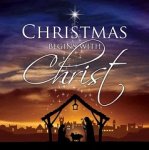What would you call pagan practices that have been given christian names and meaning? Easter is pagan but has been given christian meanings.
I call it pagan christianity when the two are mixed together. True christianity does not have pagan practices mixed through it.
I don't know where you live, but if you lived in Europe, England for instance, and attended a church there, you'd likely be singing hymns on what use to be consecrated ground for pagan rites.
When the Christian missionaries entered Great Britain they converted or murdered the pagans they found there. And the sacred sites that had been used for ritual for generations were burned. Atop the remains those Christians built churches. Their point was to vanquish their Christian Devil from the area where no pagan believed in a devil nor did they ever worship such a thing.
The days of the week in the Christian calendar are the names of pagan God's and Goddesses. Christainized so as to overcome their "power" with the intention of Christ.
All those holidays celebrated today? Christmas, Easter, are indeed pagan rooted. Blame the Christian church, the Roman Catholic to be precise, and also for Sun-day church worship. Early Christians thought they would co-opt Pagan ritual days and overcome them with the honoring of Christ.
One thing they didn't count on. The falsity of that.
Jesus wasn't born on December 25. Nothing in scripture gives a date for his birth, and nothing in scripture says his birth day should be honored. While pagans, uneffected by the December 25 "Christ's Mass" calendar date worshiped on the Winter Solstice from December 21st unto December 23rd.
Easter, was formerly the ritual day of the goddess Ostara. The goddess of fertility. Again, having not a thing to do with Christianity whatever when co-opting it to symbolize Jesus resurrection. And that day was typically scheduled for rites and worship during the Spring Equinox. March 20th to March 23rd.
"Halloween" was in Europe was called Samhain, pronounced "sow-en". It was the time to celebrate the harvest of plenty, wherein the villagers would survive a harsh winter. This is also why their god of the wood is depicted as either a man wearing antlers, or a stag. Because in winter that was the one meat animal they could avail themselves of to survive winter also. That is if the law of the King of England wasn't still prosecuted so as to make all deer in the woods of England his private property. "Poaching" of which by villagers, starving peasants, being a death penalty offense.
Christian missionaries saw the horned stag honored by those pagan, peasant, villagers and attached the Christian Devil to the image when in reality there was no such being in Pagan faith.
Pagans were decapitated, burned, or hanged, in Europe by those who intended to convert all of Europe to the prince of peace.
Today, Christianity is Christianity. Being nothing the early conversion missions co-opted from Pagans actually pertained to pagans, there is no such thing today as Pagan Christianity.
Christmas isn't celebrated on Winter Solstice.
Nor is Easter.
And the days of our week are so far removed from the pagan name god's and goddesses as to make even that irrelevant.
The only thing that remains in practice that was pagan, Roman pagan, was the Roman's Catholic faithful conceding to worship God on the Suns-day, like unto the Romans.
When in reality, they'd formerly recognized Sabbath as Jesus did. From sundown Friday unto sundown Saturday.
But in order to survive in Rome at that time, the early Roman church compromised so as to let their worship appear to be synced, if just on the day, with Saturnalia. The worship of the Roman god Saturn.
1
1



